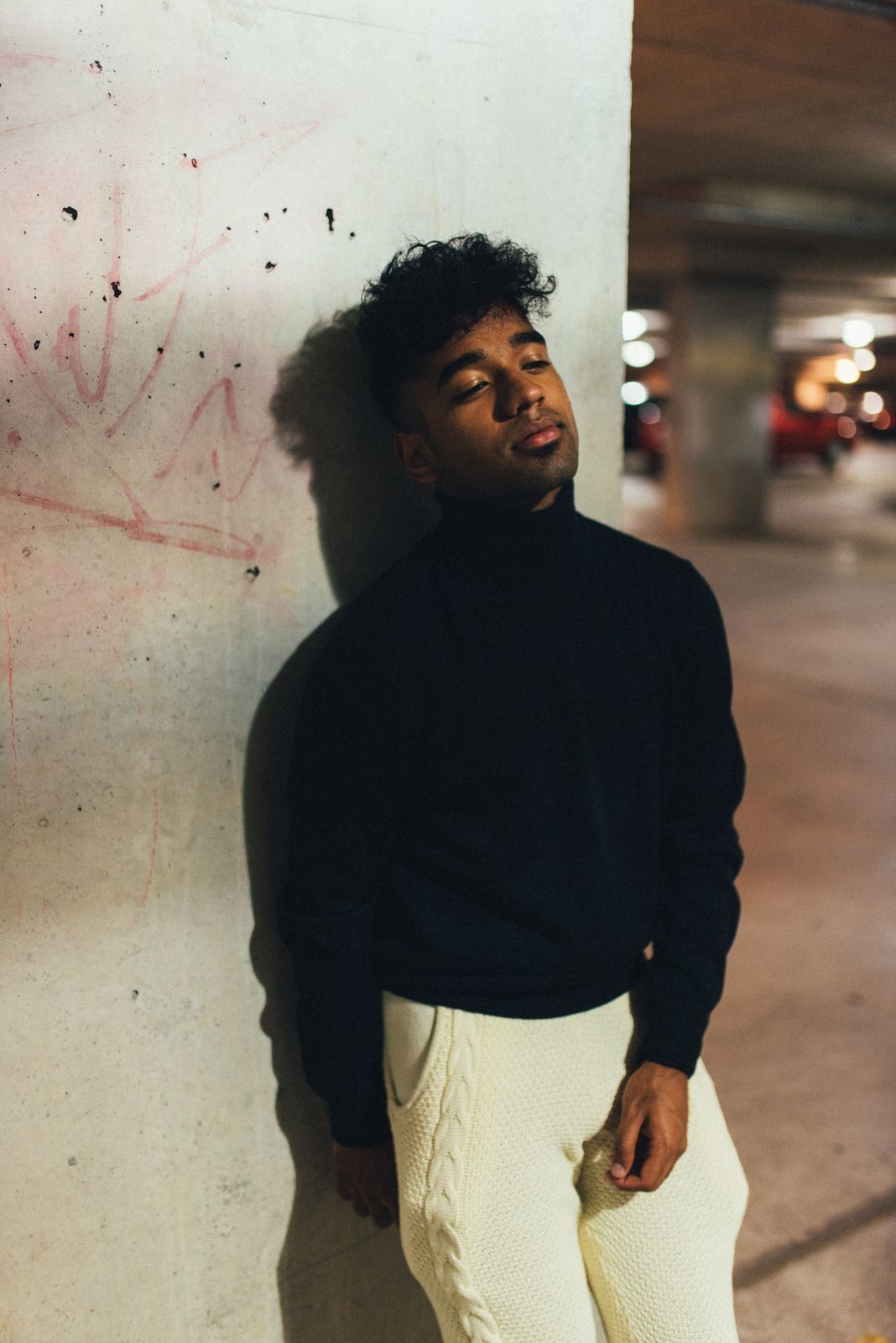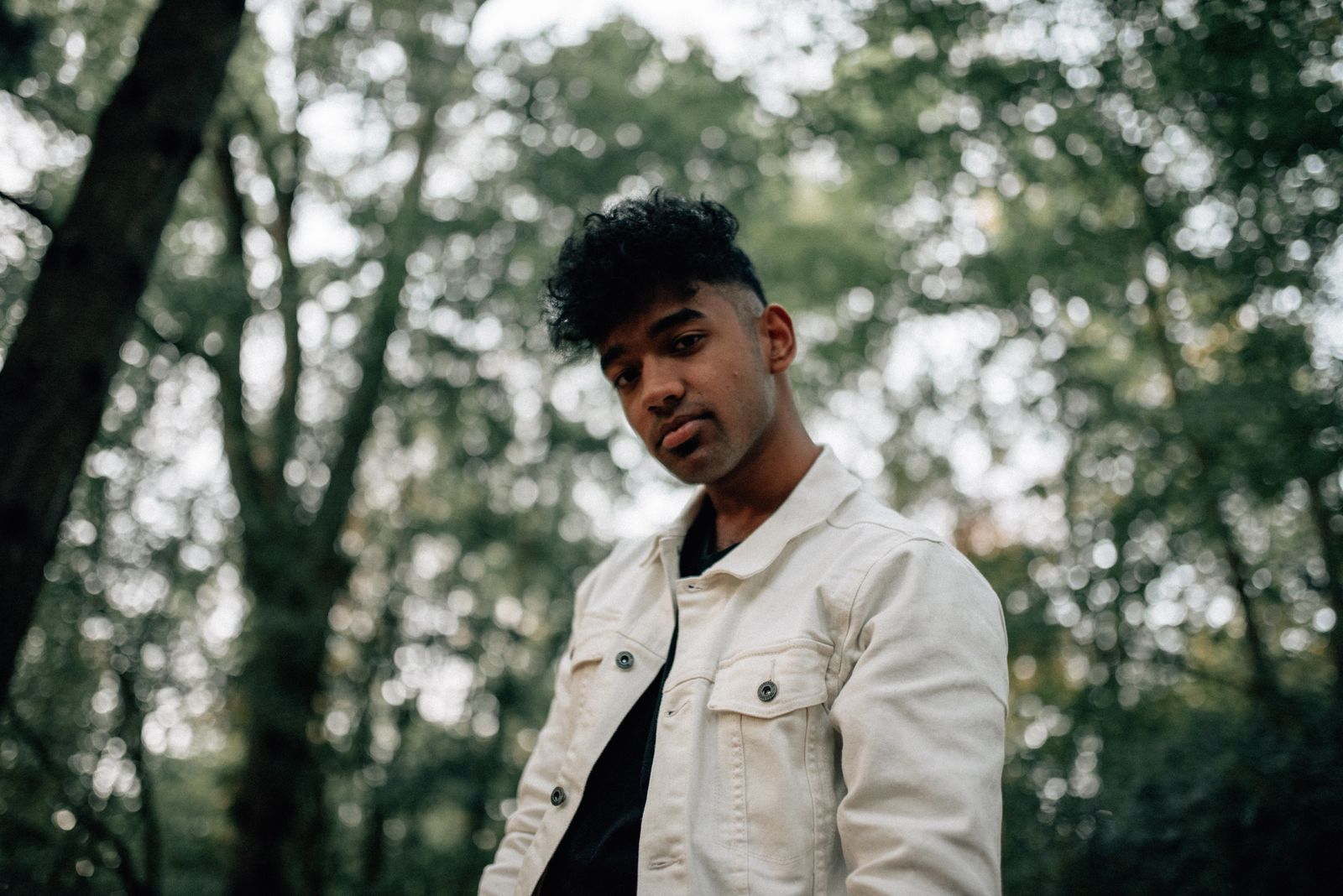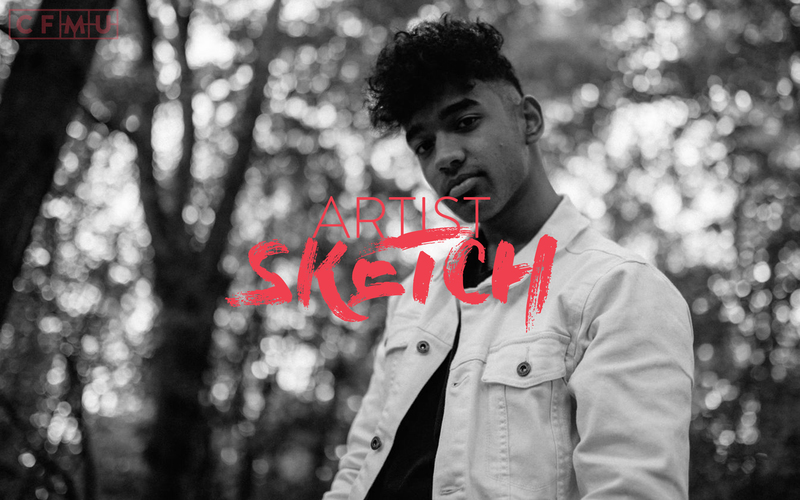The use of Indian Classical music in RnB: am.i - CFMU Artist Sketch
Photography by William Dang
My singing is highly influenced by my training in Indian Classical music
Introducing am.i.
The blissful vocals of am.i. also known as Amirthan Sothivannan resemble that of musical giants such as The Weeknd and Miguel.
Emerging from the suburbs of Southern Ontario, Sothivannan was the kid who did not fit into any particular genre. His childhood was spent immersed in different cultures. Vocally, he is trained in Indian Classical music. Although, growing up in Canada had a major effect on his particular genre of music and allowed him to break free of his classical training.
am.i. describes his music as an exploration of a bleeding soul: looking into the depths of what makes us human - our passion, our anger, our despair, and our learning to find peace. The nineteen year-old resembles many of these themes to the struggles that youth often go through.
Wild, his debut single is a deconstruction of R&B, combining its soulful beauty with the lyricism of hiphop, and combining it with the platforms of different instruments and musical constructions. Sothivannan showcases his wide range of vocal talent through his emotionally engaged lyrics, often intensely so, while remaining cool, relaxed, and in control.
I’m a third year in the Bachelor of Health Sciences program here at McMaster.
Give us a quick little introduction about yourself, what does a University student based in the GTA have to say?
I’m a third year in the Bachelor of Health Sciences program here at McMaster. Music’s been a part of my life since I was young. The GTA (and Hamilton) has an incredible and diverse culture and community when it comes to the arts, and coming to Hamilton for my undergraduate degree was a big factor in getting me to break the limits on my creativity.

What are some of your musical influences? What got you into producing your music?
I’d like to say that my music is influenced by a lot of different styles: my singing is highly influenced by my training in Indian Classical music, but I learned production and songwriting exploring music by The Neptunes, Michael Jackson, Beethoven, The Ramones, Frank Ocean - the list goes on and on.
I grew up embracing both identities and learning to incorporate both cultures into my lifestyle.
Could you expand more about your background? How connected are you with the Indian culture?
A small point of clarification - I am Sri Lankan (Tamil), not Indian! I am fairly connected with the Sri Lankan and Tamil cultures, particularly through my artistic work. I was born and raised in Ottawa as a first-generation Canadian. While I’ve never had the opportunity to visit the places in which my parents grew up, the culture and values they brought with them to Canada have played a large role in defining my childhood.
Sometimes I think of myself as a conduit between multiple cultures: I grew up embracing both identities and learning to incorporate both cultures into my lifestyle.

Can you talk about how Indian/Canadian culture has influenced your self-identity and music?
It’s no secret that my music is influenced by many different perspectives, of which Indian/Sri Lankan classical music is one. I was encouraged as a child to explore myself musically in many different ways and to not limit myself to just the Carnatic (South Indian/Sri Lankan Classical) way that my parents had grown up admiring. As a result, I grew up surrounded by Carnatic, Western Classical, Jazz, and a whole other assortment of musical genres.
RELATED: On a bed, chatting with Broken Social Scene's Kevin Drew
I was also lucky to grow up in a multi-ethnic community in Ottawa that celebrated different cultures as well as a shared Canadian identity. Although it hasn’t been a smooth road at all times, it has enabled me too understand those two cultures as distinct, but integrated parts of my own identity.
My parents first enrolled me in vocal classes for Carnatic music when I was four years old.
Why did you train in Indian Classical music?
My parents first enrolled me in vocal classes for Carnatic music when I was four years old. Carnatic music is the term used to describe the classical music system developed and commonly practiced in South India and Sri Lanka (not to be confused with Hindustani music, which is the classical music system developed and practiced in Northern India and other nearby areas).
I’m told that as a toddler, I would never stop singing: my parents had enough trouble getting me to stop singing so that I would eat. My parents recognized that I had some vocal and musical talent and encouraged me to start learning alongside my older brother.
That being said, it was never really a chore to start and continue training in Carnatic music - I wasn’t going to turn down an excuse to continue singing and refining my ability.

How do you go about finding inspiration for your songs? Is there a method to your madness? Purpose?
Inspiration comes in many forms - I don’t necessarily look specifically for something to inspire my music. The songwriting process for me starts with writing lyrics - getting the poetry on paper. I then match it with a tune and overall sound that I conceive mentally, and deconstruct that sound in my production. The song is alive in my head long before it gets laid out and recorded.
What artist do you emulate?
I’d like to think I’m building my own sound, but artists whose sound mean a lot to me include The Weeknd, and Timeflies.
Why do artists such as the Weeknd and Miguel inspire you?
These two artists specifically have played a big role in my initial explorations of R&B when I was younger, and their contributions in reinventing the “R&B sound” have played into my own musical sound. Miguel’s songwriting is incredibly refreshing, and the Weeknd is always bringing new colours to R&B production.
Any upcoming projects?
A bunch of music is in the pipeline. Nothing to announce yet, but stay tuned - they’ll be coming soon.’
WATCH: CFMU sits down with EDM giant SAN HOLO and talks about recording in beautiful San Francisco
